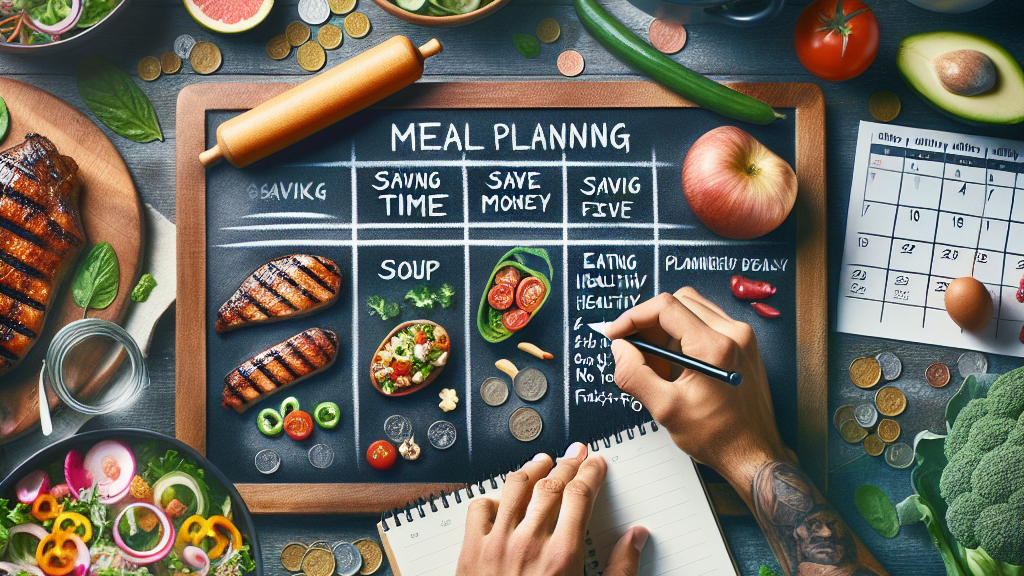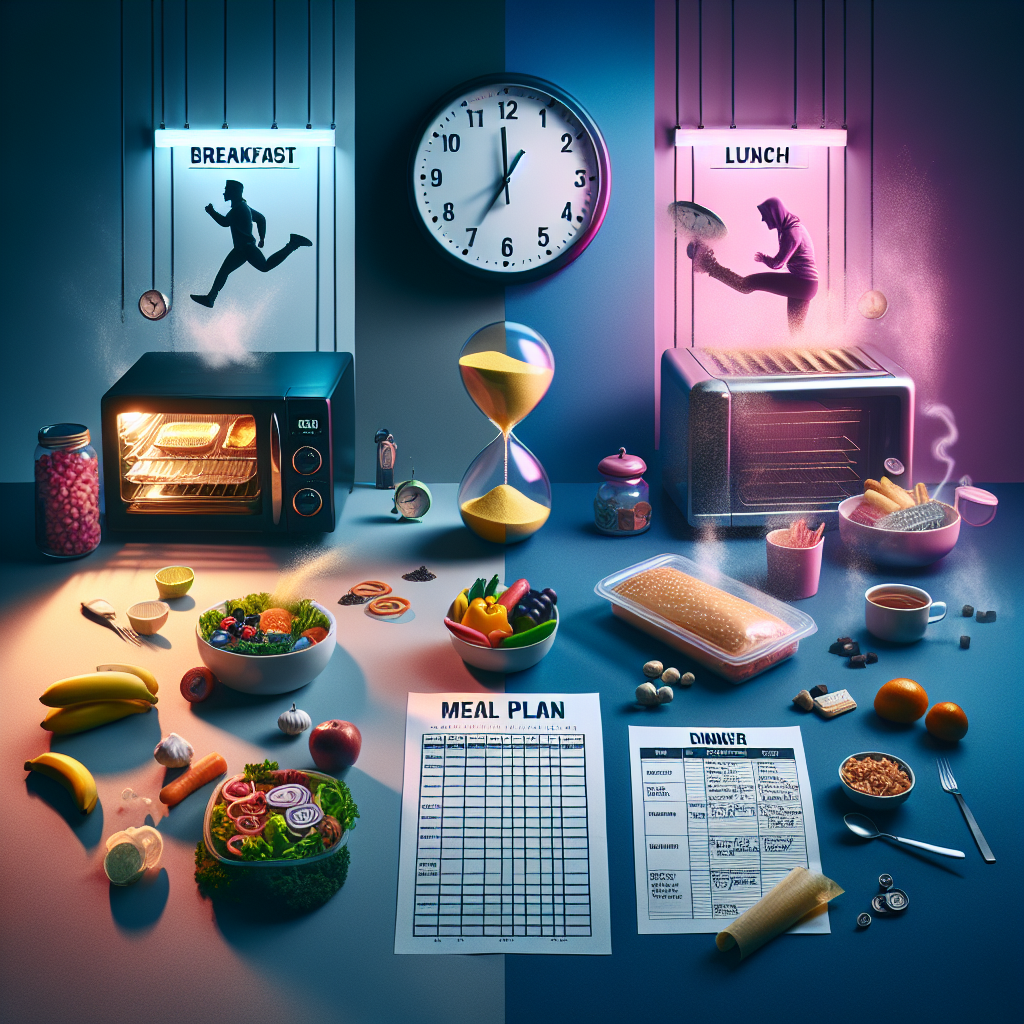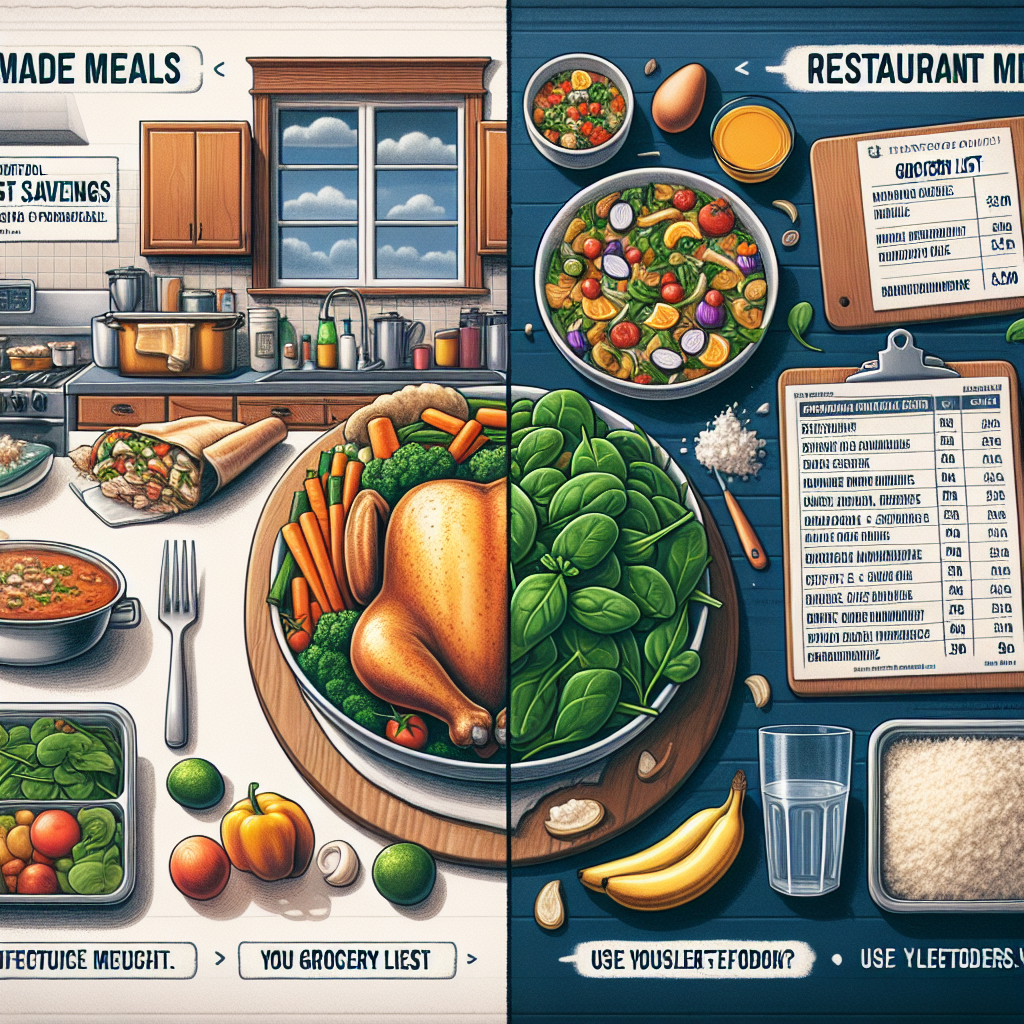
Why is meal planning important? The exact benefits of meal planning are a little different for everyone, but I find most reasons fit into three main categories. Here’s my take on The Importance of Meal Planning: Three Reasons to Meal Plan Weekly!
What is meal planning?
Meal planning is the simple act of planning and writing down any of your meals for the week (or month!) ahead of time.
Plan for yourself or plan for your family. Plan to eat wholesome meals, and plan a night out or two. Plan every snack and meal, or simply plan your lunches so you don’t spend money on restaurant food during the week.
Meal planning is as flexible or as rigid as you want it to be!
It doesn’t really matter what you plan, as long as you thought about it! The goal is not to start from zero for every single meal.
There are a lot of reasons why I think meal planning and meal prepping rock, but I think they all fit into three main categories: saving time, saving money, and having more control over your food choices.
The Importance of Meal Planning: 3 Reasons to Meal Plan

1. Save Time
This reason is the most appealing to me. I love saving time! Some people need to save more time than others. Everyone is different, and everyone’s needs are different.
When you start meal planning, try to identify one meal where you really need a time-saver, and then plan your meals with that in mind.
Save yourself time on those busiest days by having meals already prepared, or by planning super simple quick meals you know the whole family loves.
BONUS: You can easily make sure you already have all the ingredients ahead of time!.
A Way To Start
Pick your busy days, and plan on those meals being the most simple, or prepared ahead of time to help you later. Here are some examples:
Breakfast: I’m not a morning person, at all. Breakfast used to always be the first thing to go if I woke up late or just took too long getting ready. So I learned that I needed to prep a breakfast ahead of time that was as simple as popping it in the microwave or toaster oven.
Lunch: My lunch break always seemed to last a lot longer if I didn’t have to run out and get some food during the first half. Weird, huh? Lunch prep is best prep if you work outside the home!
Dinner: If you planned ahead, you already know what’s for dinner, and you probably already have the ingredients for it. I’m on a mission to turn the classic “what’s for dinner?” question into “how can we prep for dinner?” and “will there be leftovers?”
A lot of Meal Plan recipes are focused on make-ahead food and prep that can be done ahead to save time later. That’s because if you meal plan, you can always meal prep, which can save you even more time!
Here are some other ways meal planning can save you time:
Reduce grocery store trips. If your weekly menu is planned ahead of time, you can do your best to buy everything for the week in one trip (unless you somehow still forget things like me).
Reduces wandering at the grocery store. I’m a wanderer. Even now when I have a list, sometimes I just want to search for sales or find yummy new items. But too much of that wastes time.
Know what foods can be prepared ahead of time. You know the menu, so you know what needs to be prepped. For example, we put diced onion in almost everything. So instead of dicing a little bit for every other meal, we dice the whole thing at one time. You might not think about it, but that saves the time of washing and drying your knife and cutting board for the next 3 or 4 times you need diced onion. And, if I have time now, I’ll dice the other veggies for later too. Tiny little time savers added up can really make a difference!
Planned leftovers. What can I say? I love leftovers. I’ll stop trying to make “planned-overs” happen if you guys just admit leftovers save time. This one is pretty obvious to me!

2. Save money
When you plan and cook your own meals, you are most likely saving money on each of those meals, compared to purchasing the same type of meal in a restaurant.
I haven’t scientifically tested that theory, but I’m going to go ahead and make that bold assumption based on my years of eating experience (both cooking my own food and eating out).
Tess Rose Lampert at Cheapism.com does a bit of research in her article Is Cooking at Home Really Cheaper Than Eating Out? She compares prices on a classic chicken dinner with veggies and determined that cooking the classic dinner at home could cost up to 60% less than eating it at a restaurant. At a restaurant food cost is priced to also cover all restaurant labor and building and management costs so naturally it will be more expensive.
Lastly, planning your meals can help reduce food waste, which can save you money on your grocery bill in the long run. While it might be impossible to go 100% waste free, some simple planning techniques can help dramatically reduce your food waste.
For example, if one of my casseroles requires some baby spinach, I’ll also try to plan lunches or smoothies for the week that also require baby spinach, helping me to use up more of the ingredient I purchased.
Simply eating leftovers or planning a day to eat leftovers is a good practice to reduce food waste (and therefore save you money!).

3. More control over food
Everyone is different, and everyone’s needs are different. When you plan ahead, you can make smart choices related to your own personal food needs and fitness needs, instead of grabbing something at the last minute.
More insights on how meal planning can give you control over your food:
Eating the right amount for you. Sometimes if you’re feeling excessively hungry, way too happy to be eating, or just using a different sized spoon, you can get totally varying/random portion sizes on the plate. Planning and pre-portioning your food can ensure your hard work makes it to the amount of servings you initially planned for. Plus, it can be really nice to have everything already portioned out for you. Of course if that’s not your style, try a buffet style meal prep instead!
Staying accountable to past you. If you already made the food and pre-portioned it into perfect bowls with future you in mind, you’re really kicking past you in the butt if you don’t eat it. Planning and prepping your meals provides a little more incentive to eat the delicious things you’ve already planned out and cooked. If it’s already made, I’m gonna eat it!
More control over your choices. If you have certain goals with your eating, it can be a lot easier to incorporate them into your life by planning meals ahead of time. Or, it can be as simple as the fact that already choosing a meal to cook or eat keeps you from ordering food and spending more money. Either way, planning out your choices ahead of time means you are more likely to stick with them when the time comes.
Things To Remember About Meal Planning
Don’t let the term meal plan scare you. You can plan literally anything. You can even plan NOT to cook. What’s important is that you thought about it. You know what you have going on.
Make YOUR meal plan as flexible as you want. It’s for you, and it’s okay if you don’t follow it 100%. I’ve seen a little negativity towards meals plans because sometimes it’s hard to stick to it. That’s okay! Meal plans are meant to be a helpful roadmap, not a strict set of rules that causes anxiety.
If you don’t like eating the same thing every day, planning is even more important for you in order to save time, money, and make healthy choices. You can cook a large batch of chicken or other meat and eat it in various ways throughout the week.
The perfect meal plan for you is in your head – you just need some resources. The whole point is to not start from zero every night.
Now that you know the importance of meal planning, are you looking to get started with meal prep?

How To Get Started
If you have absolutely no idea where to begin, here’s what I suggest.
1. Pick out one meal of the week that you struggle with. Maybe you want to save time or money by planning ahead and cooking this meal at home.
2. Plan what you’re going to have for that one meal of the day for the next 3 days in a row. If you need a place to start, look in your pantry so you can use some ingredients you already have on hand.
3. Write down your planned meals on a notepad, in a calendar, in an app, or print out one of my meal planner templates and put it up on the fridge.
4. Review all planned recipes and make a grocery list. When you go shopping, do your best to stick to the list. This is one way meal planning helps you save money!
5. Follow through by actually cooking the meals you’ve planned. You don’t always have to do exactly what you planned out for yourself, but try it for at least 3 days. Use up your ingredients by making delicious home cooked meals.
Call me with any questions:
312-623-6828
 Add Row
Add Row  Add
Add 










Write A Comment